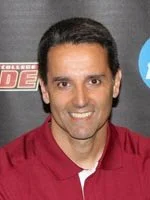HOW TO START YOUR COLLEGE PROCESS
College Recruitment Letter Guidelines
How can you create a good recruiting email template? Check out sample emails to give you a good idea of the good and the bad. Here are some key guidelines for a good college recruitment letter email:
Personalized to the Coach — Do not use a generic address such as “Dear Coach” in an email. Take the time to look up a coach’s name on the school athletic website. College coaches may not read an email if their name (correctly spelled) is not included.
Direct Subject Line — It is important to be clear and concise in an email subject line header and include First Name, Last Name, Graduation Year, Position and reason for the email. For example, “Sally Smith 2020 Forward: Interested in State University Women’s Soccer” or “John Smith 2020 Defender: Schedule for National College Soccer Showcase.”
Be Short and Sweet — Coaches get a lot of emails and are not looking to read an entire life biography. They want the basic facts and some pertinent information that can show why you are a fit for their team.
What College Coaches Need to Know
The initial contact email should include some key information.
Most important:
First Name, Last Name, Graduation Year
City and state a player is from
What high school or club team a player is on and what uniform number for each team
What a player is interested in majoring in or studying in college
GPA and class ranking (if available)
Why the college contacted is of interest or a good fit
Ways college coach can see a player play (league schedule or schedule of upcoming tournaments)
Player’s contact info (home phone, mobile phone)
High school or club coach contact info (email, mobile phone)
Also important, but not always applicable:
Standardized test scores (SAT, ACT)
Specific schedule for an upcoming tournament (include dates, times, field location and link to online schedule if available)
Video links to edited highlights or game footage
League games or tournament games geographically near the college contacted
Camps or clinics a player is attending geographically near the college contacted
Plans for visiting the college contacted
Times a player plans to call a contacted coach on the phone
It is also very important at the same time as sending a college recruitment letter email to a college coach to also go to that team’s website and fill out any online college recruitment forms or questionnaires. The best chance of connecting with a coach is to send an email and fill out the recruitment form – don’t just do one or the other.

